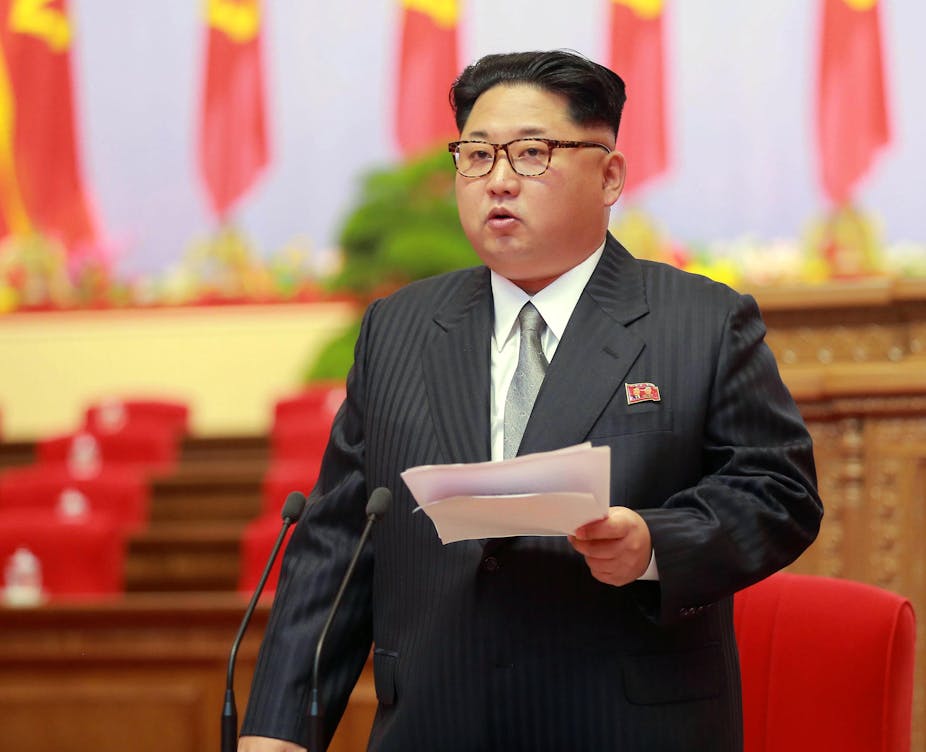Amid the furore over Donald Trump’s executive orders and cabinet nominations, his administration has also started to lay the groundwork for its foreign policy positions. James Mattis, the US defence secretary, made his first trip abroad in the post not to the Middle East, but to South Korea and Japan. At the heart of his conversations was the ongoing concern over North Korea’s nuclear weapons program.
Striking a more conciliatory tone than his boss had expressed previously, Mattis reinforced Washington’s security commitments in the area. In particular, he voiced support for the introduction of a US Terminal High Altitude Area Defense anti-missile system (THAAD) into South Korea as a means of countering North Korea’s bellicose behaviour. The new US secretary of state, Rex Tillerson, has also reportedly spoken to his South Korean counterparts about developing a strong alliance against North Korean aggression.
North Korea last performed a nuclear test in September 2016 and is rumoured to be preparing a missile trial. Satellite imagery seems to indicate it has also reactivated a facility at Yongbyon, which has previously been used to develop nuclear material for weapons.
Yet Trump’s position on North Korea remains opaque. Once apparently open to talks with the country’s leader Kim Jong-Un, the president has since tweeted:
While we wait for a clearer view of the US’s position, uncertainty also remains about North Korea’s relationship with the United Nations, China and South Korea. But rather than speculate on the future, it is perhaps more fruitful to look towards North Korea’s past as a window into its interests and perceptions. If policymakers truly hope to reduce tensions in the region, understanding North Korea, officially the Democratic People’s Republic of Korea (DPRK), is of critical importance.
The trouble is, policymakers and analysts have traditionally struggled to account for DPRK foreign policy. It has always been something of a mystery. But a new approach to explaining its past foreign policy might provide useful insights into how best to contend with the country. One such approach is to build a framework around the concept of “ontological security”.
Ontological security, as explained by psychiatrist R D Laing and sociologist Anthony Giddens, refers to the “security of being”. Put simply, in order to feel secure we must possess a stable feeling of self-identity. Our ability to do this is intimately tied to the group to which we belong, providing us with the stability upon which we can build a sense of self. If the foundations of that group are challenged or called into question, then so too is the related sense of self.

When that group is a nation, its larger sense of self is founded upon a mythologised past. We come together around a shared narrative – one that tells us who we are, where we have come from, and where we are going.
In North Korea, this largely stemmed from post-colonial nationalism, a response to Japanese occupation and negative interactions with Russia and China during World War II. We have subsequently seen North Korea consistently seeking to uphold a national narrative of extreme independence, unification and non-subservience to great powers. As my ongoing research has found, this has often been done at the expense of its own physical security and economic interests, jeopardising key alliances and undermining access to military and economic support, all while seeking to maintain an aggressive posture against its adversaries.
North Korea at a crossroads
For example, the DRPK repeatedly rejected Chinese military assistance before and during the Korean War. Once China did get involved, the effectiveness of its forces was hindered by North Korean concerns over sovereignty. After the war, subsequent feuds with both China and Russia came at a time North Korea relied on both for its sustenance, again highlighting the priority of national narrative over other interests and considerations. Against this backdrop of behaviour being linked to ontological security, the notion that the international community, or China, can somehow cajole North Korea into making concessions over its nuclear program seems counter intuitive.
This is not to say there is no leverage. China is well positioned to crack down on DPRK procurement of the materials and resources required for future progress within its nuclear and ballistic missile weapons program. Should China choose, it also has the capability to put significant pressure on the North Korean economy. But there is little interest from Beijing in seeing the DPRK collapse only for US and South Korean forces to take its place. At best, should China manage to twist North Korea’s arm to such an extent their survival depends on change, Pyongyang will undertake the necessary face lift. Whether that change would be lasting or substantial is questionable.
North Korea’s security interests are now intimately tied to its nuclear weapons program. Perhaps more importantly though, so too are its notions of independence, non-subservience and self-reliance. A failure to account for the DPRK’s history when seeking to understand its current interests will lead to misplaced diagnoses and policies. Instead, policymakers need to look to the past in order to understand how we might approach and deal with North Korea in the future. Understanding the North Korean highly protective attitude to its own identity will help us predict DPRK reactions and perhaps shed light on new avenues for engagement. Failure to do so will lead to misunderstanding, and potentially dangerous consequences.

